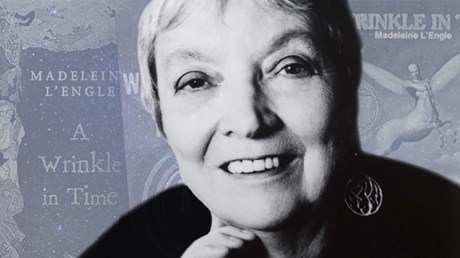A new “spiritual biography” of the author of A Wrinkle in Time celebrates her refusal to be pigeonholed.

If we are willing to live by Scripture, we must be willing to live by paradox and contradiction and surprise.” Madeleine L’Engle said it, and she certainly lived by it. Sarah Arthur takes this principle to heart in A Light So Lovely, a new book that explores the novelist’s life and work.
Formidable in personality and far-ranging in accomplishments, L’Engle wrote more than 60 books, including novels, poetry, memoir, essays, sermons, commentaries, and creative nonfiction. She is best known for A Wrinkle in Time, the first novel in the Time Quintet, but she may be best loved for Walking on Water: Reflections on Faith and Art, her breathtaking opus on the creative process. In it, she writes, “We live by revelation, as Christians, as artists, which means we must be careful never to get set into rigid molds. The minute we begin to think we know all the answers, we forget the questions.”
As Arthur explains, L’Engle refused to be “forced into either/or.” And so, rather than approaching her subject chronologically, Arthur proceeds thematically, with chapter headings that identify pairs of complementary opposites: Icon and Iconoclast, Sacred and Secular, Truth and Story, Faith and Science, Religion and Art, Fact and Fiction (italics in the original). Like L’Engle, Arthur shows a clear preference for risk over certainty, narrative over affirmation, and questions over answers.
L’Engle’s refusal to be pigeonholed had a tumultuous effect on her life and career. The mixed reception of A Wrinkle in Time is one example. Wrinkle, Arthur insists, is “clearly, unequivocally Christian,” enough to make non-religious readers squirm. Lois Lowry, a celebrated children’s …
Source: Christianity Today Most Read